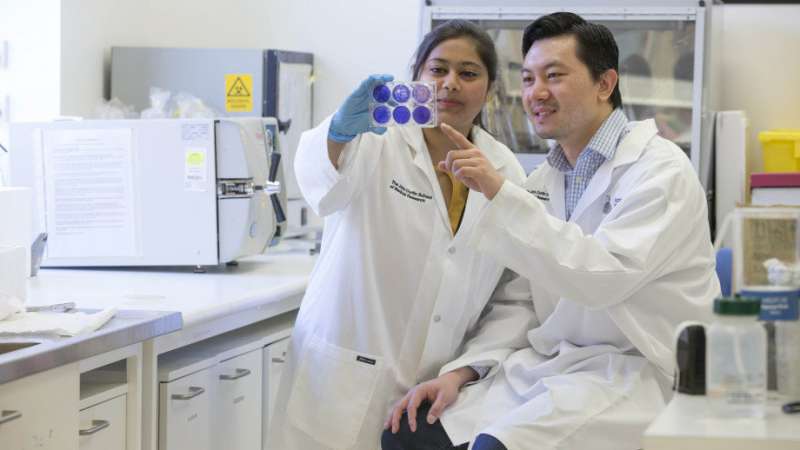The food poisoning find that could save lives

Researchers at The Australian National University (ANU) have made a discovery that has the potential to save lives when treating bacterial infections, especially serious food poisoning.
Food poisoning is estimated to affect 4.1 million Australians each year and Bacillus cereus—one of the most common types of stomach bug—is responsible for producing toxins that cause vomiting and diarrhoea.
Lead researcher and Ph.D. student Ms Anukriti Mathur, from The John Curtin School of Medical Research (JCMSR) at ANU, has found how the bacteria works and how to combat it.
"We found how this bacteria interacts with our immune system. We have discovered how it sustains itself and also how we might treat the nastiness it causes," Ms Anukriti Mathur.
It may not be a household name but Bacillus cereus can be found in vegetables, meat, fish, rice and pasta, and will grow in these foods if they are stored at the wrong temperature.
Ms Mathur found the bacteria has "a remarkable ability to secrete toxins" in contaminated food.
When the toxins are consumed they attack cells in the body which causes vomiting and diarrhoea.
"We knew the toxin would have to attack the cells, triggering an immune reaction, but we now know how it does it," said Ms Mathur.
"We discovered the toxin directly binds to the cell and punches holes to kill the cell, the immune system responds to the infection and has a reaction.
"Because we now know how the bacteria and the toxins work, we can fight it and find ways to use the immune system against it."
Researchers say the discovery will be vital in understanding and treating serious cases of food poisoning.
"This research could help patients with a compromised immune system," said Ms Mathur.
"We might be able to save patients by weakening the toxin, or in the case of sepsis, dampening inflammatory responses.
"It also means we have therapeutic drug options to further support antibiotic therapies, especially in the face of rising antibiotic resistance."
However, ANU Group Leader of the research, Dr. Si Ming Man, says prevention is better than cure.
"It is important for us to wash our hands properly and prepare food according to safety guidelines," said Dr. Man, from JCMSR.
"Always cook or re-heat food properly. Bacteria may have landed on it and start secreting toxins in your food.
"Heating your left-over food properly will destroy most bacteria and their toxins."
The research is published in Nature Microbiology today.
More information: Anukriti Mathur et al. A multicomponent toxin from Bacillus cereus incites inflammation and shapes host outcome via the NLRP3 inflammasome, Nature Microbiology (2018). DOI: 10.1038/s41564-018-0318-0
Journal information: Nature Microbiology
Provided by Australian National University





















